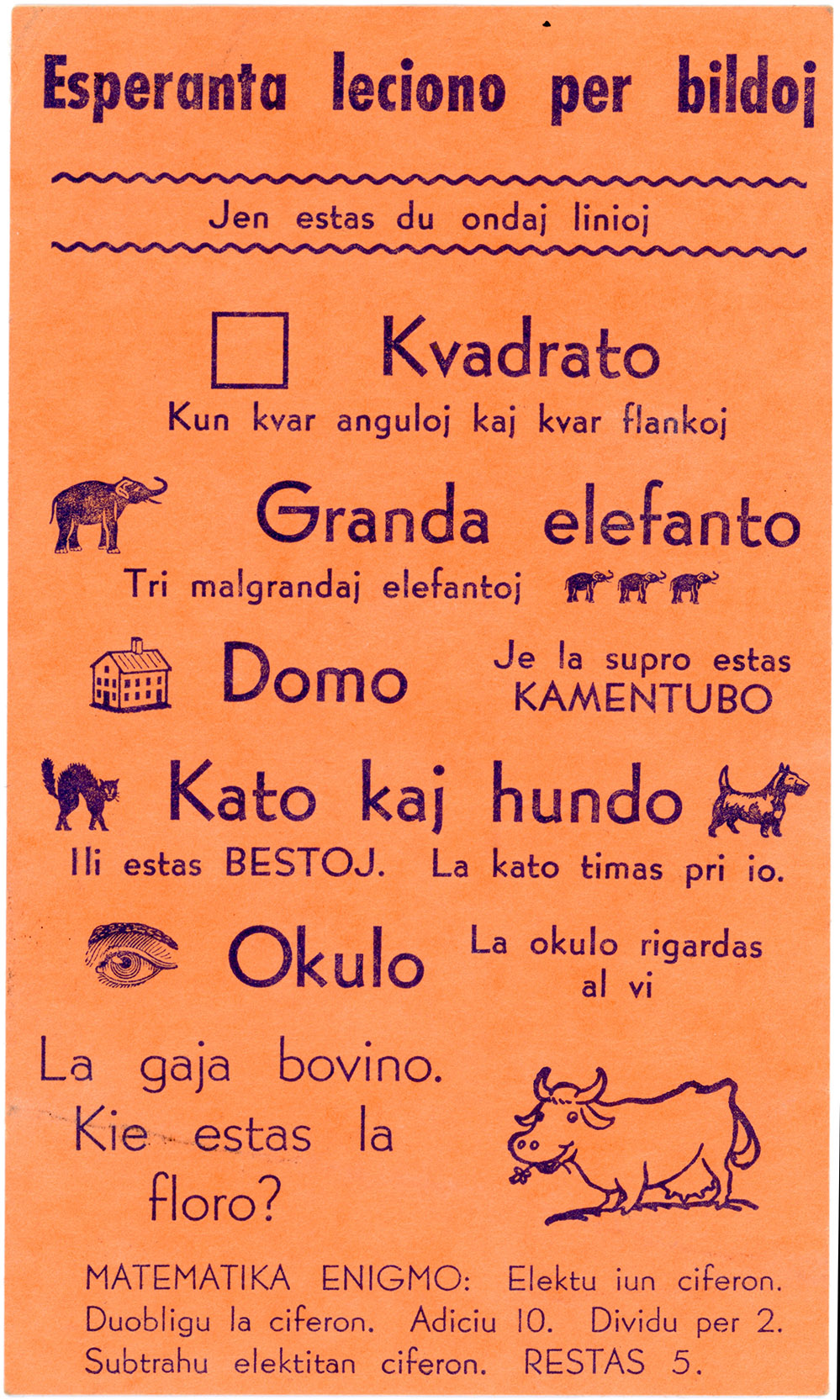Esperanto Information Center Records

Labor educator Mark Starr first became interested in the potential of the constructed language, Esperanto, for promoting peace and international understanding while serving time in prison for conscientious objection during the First World War. A career in labor led him to immigrate to the United States in 1928, where he taught at a labor college in New York before becoming the educational director for the International Ladies Garment Workers Union. Long active in the Esperanto movement, he joined the Esperanto Information Center when it was founded by Bernard Stollman in 1962 and served as its chair from 1965 to 1972. As the New York Office of the Esperanto League of North America, the EIC played a key role in promoting the movement in the United States and sharing information among supporters and aspiring learners.
Meticulously maintained by Starr during his tenure as chair, the EIC records include a rich correspondence with local and regional Esperanto organizations and national and international affiliates, and particularly its parent body, the Esperanto League for North America. While much of the content consists of routine communications about membership, queries from learners, and organizational wrangling about meetings, conferences, and publications, the collection provides insight into the grassroots organizing and lobbying for the language and its roots in internationalism, peace, and social justice concerns. Written in both Esperanto and English, the collection includes letters (retained copies as well as received) and articles by Starr and other noted Esperantists, including Allan Boschen, Francis Hellmuth, and Humphrey Tonkin.

